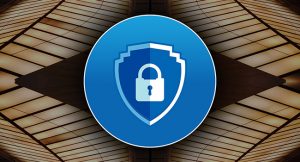Covid19 offers various things such as workplace safety protocol, and employees feel anxious about their safety. It is the matter of seconds, the attacker enters the network. It is clearly visible to see how COVID19 has become beneficial for cyber criminals. Newly remote workers are overwhelmed with the security team as the security is a huge question when you are working remotely.
 Credit helpnetsecurity
Credit helpnetsecurity
Cyber defenses
The COVID19 pandemic has exposed the business getting impacted by the cyber-attack.
A survey of incident response (IR) professionals found 53% encountered cyber attack exploited COVID19, VPN vulnerabilities 45% and staff shortage is 36% as most intimidate endpoint security challenge.
Many businesses are relying on VPN for protection, this is the one of the reasons for hype in the vulnerabilities and this becomes a major concern. We need to update cycles for software patches which occur on a weekly basis. Still It may not be enough to protect your information.
If we talk about vulnerabilities, IR (Incident Response) professionals point out to use Internet Of Things technologies, personal devices like iphones, ipads, web conferencing applications, all of which are becoming popular due to employees working from home.
Attackers can attack family environments easily instead of an organization’s network, it may originate in home infrastructure.
How to defense your data
As COVID19 impacted us in many ways, we need to use firm defense against new vulnerabilities in the organizations, shortage of staff is itself a vulnerability, integrating endpoint technologies, IT and security teams or adapting new networks and remotely working.
Let’s talk about some points to defense our data:
- Practice Digital distancing– Employees who’re working from home must have two different routers, so they can work on the one router while you can use your other device on another router.
- Real time updates, policies and configurations across the network– Update VPN’s and fix the configurations across remote endpoints and other security updates.
- Communicate– About risk factors (phishing, smart devices, file sharing apps) protocols and security updates.
- Collaborate between IT and Security teams– We need to align with the IT person to become an expert of your system.
Attackers will continue to exploit vulnerable situations. Business must focus now on defense to better protect against the threats.
Reference:
hxxps://www.helpnetsecurity.com/2020/09/08/cybersecurity-after-covid-19-securing-orgs-against-the-new-threat-landscape/
About the author
Rashi is a cyber security specialist with a degree in Cybersecurity. She has led teams in analyzing and implementing security best practices.





